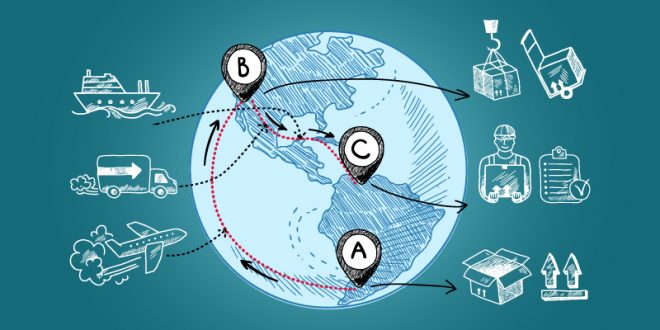Blockchain technology is transforming supply chain management by introducing unprecedented levels of transparency and traceability. This article explores the revolutionary impact of blockchain in supply chains, its benefits, and how it is reshaping the way businesses manage their logistics and inventory processes.
- Understanding Blockchain in Supply Chain: Blockchain is a decentralized and immutable ledger that records transactions in a secure and transparent manner. In the supply chain, blockchain enables real-time tracking of goods and transactions across the entire network.
- Enhanced Transparency and Accountability: With blockchain, each participant in the supply chain gains real-time visibility into the movement and status of goods, promoting trust and accountability among all stakeholders.
- Supply Chain Traceability and Product Authenticity: Blockchain’s permanent record of transactions enables end-to-end traceability, helping combat counterfeit products and ensuring the authenticity of goods.
- Smart Contracts and Automated Workflows: Smart contracts on the blockchain allow for automated and self-executing agreements, streamlining supply chain processes and reducing administrative costs.
- Supply Chain Financing and Payments: Blockchain facilitates faster and secure cross-border transactions, reducing delays and costs associated with traditional banking systems.
- Supply Chain Sustainability and Ethics: Blockchain enables the tracking of raw materials and the monitoring of suppliers’ sustainability practices, promoting ethical sourcing and responsible supply chain management.
- Eliminating Counterfeit and Gray Market Challenges: By integrating blockchain-based product tracking, supply chains can combat the challenges posed by counterfeit products and unauthorized reselling in the gray market.
- Data Security and Cybersecurity: Blockchain’s decentralized architecture enhances data security by reducing the risk of single points of failure and unauthorized access.
- Integration with IoT and Sensor Technology: Blockchain can seamlessly integrate with the Internet of Things (IoT) and sensor technology, providing real-time data on the condition and location of goods during transit.
- Collaboration and Industry Standards: Adopting blockchain in supply chain management requires collaboration among industry players and the establishment of common standards to ensure interoperability and efficiency.
Blockchain technology has ushered in a new era of transparency, efficiency, and trust in supply chain management. By leveraging blockchain’s decentralized nature and cryptographic security, businesses can create more resilient and sustainable supply chains. As more companies recognize the potential of blockchain in enhancing supply chain operations, the adoption of this transformative technology is expected to accelerate, reshaping the future of logistics and supply chain management.
 Blogmado Empower Your Wealth: Expert Insights for Success
Blogmado Empower Your Wealth: Expert Insights for Success



